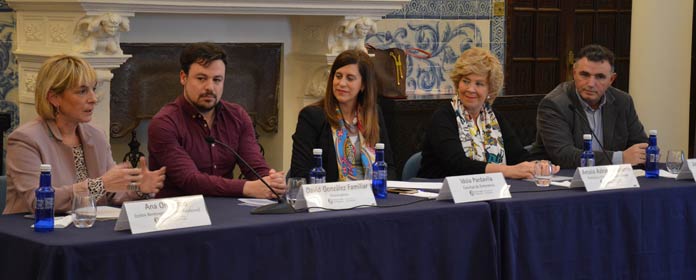Nursing professionals can also help the patient to reflect
Dorothy Jones, president of the association North American Nursing Diagnostics, participates in an international symposium at the University of Navarra.
"Nursing professionals have to help patients to reflect, to make decisions, to choose options.... Until now they have spent a lot of time giving orders and offering prescriptions. For example, in addition to advising patients not to smoke, they can help them reflect on why they smoke. Their financial aid can also be used to visualize tensions and improve their lives. And in this process, assessment performs tasks that go beyond what was previously known as nursing.
This was expressed at the University of Navarra by Dorothy Jones, president of the association North American Nursing Diagnostics. The specialist is participating in the III International Symposium on Nursing Diagnosis graduate "From Nursing Conceptualization to Computerization", which is being attended by 400 professionals.
Jones explained, "Nursing care used to take place in hospitals. More recently, in the U.S. and other countries, nursing care has been performed outside of the hospital setting. The development of a computerized patient record allows nursing professionals to have data that are not from a particular circumstance. Therefore, they can get to know patients with all the information collected in the records. In addition, the computerized advance will also allow the nursing professional to make a quicker decision that is not only focused on the critical moment of hospital admission."
To this end, a unified Nursing language is being created. "Documentation systems exist for devising a terminology from reference letter. Two international systems are focused on this. And other systems, such as the International Nursing Phenomenon Classification system, are also trying to mold to this language." This computerization has generated a discussion on the collection of data and the development of a nurses' understanding of the PAE (Nursing Care Process).
Avoiding "try and fail errors".The symposium at the University of Navarra was also attended by Patricia Iyer, president of the business consultancy service Legal Nursing Med League Support Services of New Jersey, USA. In her opinion, "with the implementation of the EAP, professionals carry out their tasks with critical thinking. Nursing could not be done without that thinking".
In addition, he pointed out that "the PAE is taught in the Schools, so that the students, when they become professionals, provide the patient with systematic and quality care".
Finally, she confirmed that the application of the EAP - introduced in the U.S. in the 1970s - allows more time dedicated to the patient, because it avoids what she calls "trial-and-error errors": "This way we establish care plans that are balanced among all the healthcare professionals and can include different aspects. This way, the care plan is coordinated and, by applying informatics, nurses have more time available because they don't write all the information about the patients.

